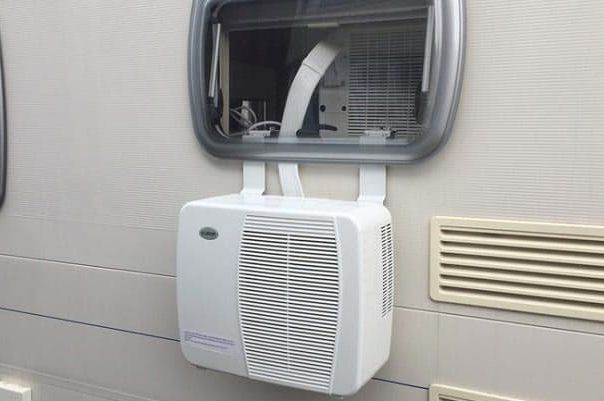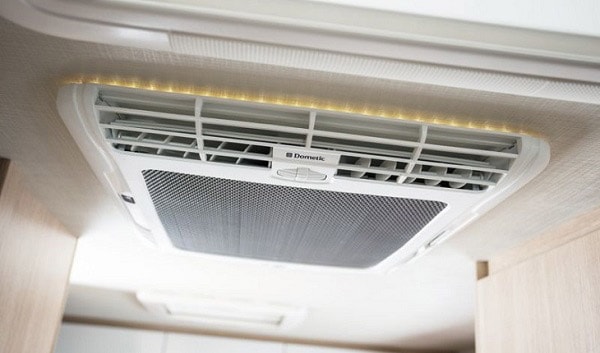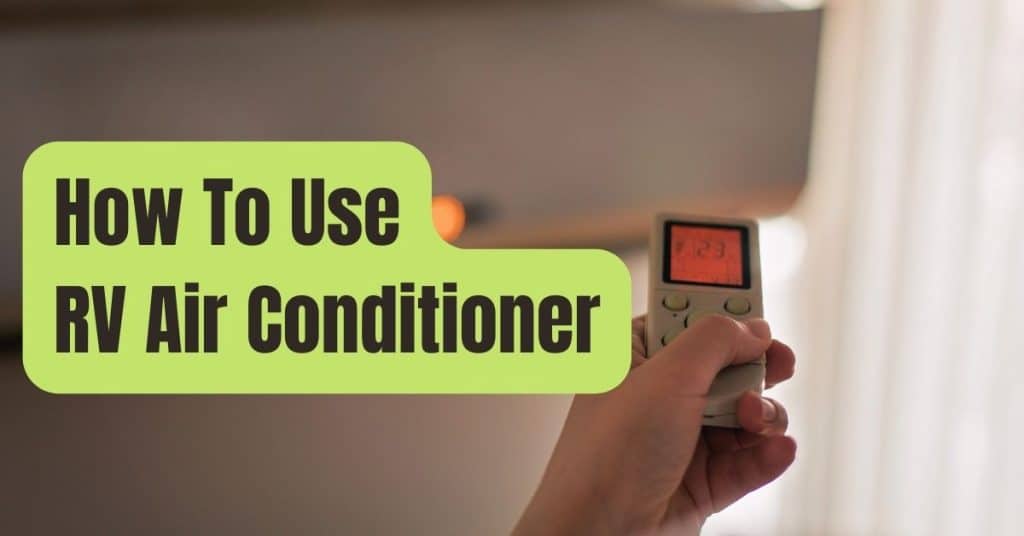It might be a concern if your RV Air Conditioner compressor not coming on. When driving during the summer or in a hot climate, the temperature inside a car may rapidly rise to deadly levels.
In extreme heat, the inside of an automobile may reach 170 degrees. While your RV is unlikely to become as hot as a compact car, it may still reach temperatures high enough to make you sick.

Overheating may cause a variety of serious symptoms, particularly in the elderly. Heat exhaustion may occur while driving in an overheated car. Fatigue, nausea, dehydration, dizziness, fainting, cramps, headaches, and low blood pressure are all possible side effects.
As a result, it’s critical to fix a malfunctioning RV Air Conditioner as soon as feasible. It is the most effective technique to keep your car cool while also ensuring the safety of all passengers on the road.
Why your RV’s air conditioner won’t turn on?
The air conditioner in your RV might be broken for a variety of reasons.
1. System of Energy
One of the first things you should look at is the power system of your air conditioner. Keep in mind that your RV has a lot of electric appliances. Check that everything is connected properly and that the machine is receiving adequate power. If it doesn’t, a brownout might occur.
This indicates that the unit is only operating at a fraction of its capacity and is not cooling properly. A unit that is blowing hot or warm air might be a sign of this. Check the control panel to see whether your air conditioner is running short on electricity. AC units need a minimum of 120 volts to operate.
2. Problems with the wiring
Wiring faults might possibly be the reason of the unit’s failure. Faulty wires, loose connections, and stripped wires are the three most common wiring problems.
Wires that have shorted a circuit are known as faulty wires. It frequently occurs when there is a power outage. Damaged cables might not only create difficulties with your air conditioner, but they can also be deadly. It’s possible that they’ll catch fire.
The outcome of long-term usage is loose connections. They may shift or become loose with time, particularly in a moving vehicle such as an RV.
The covering on stripped wires has been pulled off, exposing the internal wire. Do not touch them since they are a fire danger and may cause electrocution.
3. Compressor or motor failure
The AC unit’s motor might get blocked, clogged, or damaged at any moment. You’ll need to open the cover of your air conditioner and peek inside to see what’s going on. The primary fan is generally where the motor is located. Look for corrosion, dirt, or a damaged element that might be preventing the motor from operating.
A defective compressor, on the other hand, is a little different. You may hear sounds coming from within your device or see leaks around the exterior if your compressor is malfunctioning. These are frequent symptoms of compressor difficulties and indicate that a new component may be required.
4. Thermostat Issues
The thermostat on an air conditioner might fail over time. That is to say, it loses sensitivity or becomes unable to precisely monitor temperature. Because it can no longer reliably gauge temperatures, it may “believe” it has reduced the temperature in your RV. It’s sometimes as easy as changing the thermostat batteries. Other times, you may need to seek the assistance of a professional repairman.
You can compare the temperature of the air your unit is taking in and the temperature of the air it is sending out with a few short tests. This will give you an indication of how well your thermostat is functioning.
5. Components that are filthy
Your RV air conditioner unit will gather dirt, dust, and debris over time. These may ultimately block the internal components, preventing them from functioning properly. The good news is that they’re easy to repair and don’t need any costly repairs or replacements. All you have to do now is clean the interior of your AC unit, and it should start operating again.
6. Low on Refrigerant for Cooling
A faulty air conditioner might sometimes be as easy as requiring a coolant refill. A unit that still turns on and blasts air but does not cool is usually the telltale symptom of this. Another clue that you’re short on coolant is if it takes a long time for your RV to cool down. Fortunately, there is a simple solution.
What is the Average Air Conditioner Life Expectancy in an RV?
The life expectancy of your RV’s air conditioner is determined by how often you use it and how far you drive. It should last between three and five years in most cases. However, depending on your needs and the model you have, this might be longer or shorter.
Read more: Can you run RV Air Conditioner on 30 AMP?

Maintaining Your RV Air Conditioner on a Regular Basis
The best way to prolong the life of your RV air conditioner is to maintain it. It’s straightforward and anybody can do it. Cleaning, maintaining filters, preventing ice formation, and replacing components are all examples of maintenance.
It’s simple to clean your air conditioner. To clean the inner components, just remove the outer cover and wash them off with soap and water. Unless you utilize disposable filters, the same goes for your filters.
Ice on your air conditioner may also cause damage and wear. When you detect it beginning to freeze, set the fan on high to prevent this. Ice occurs for a variety of causes, many of which are self-correcting.
The last step in RV maintenance is to examine your air conditioner a few times a year. Make sure there are no cracks, worn places, or debris both inside and outside your car.
In the end, should you repair or replace?
Many issues with air conditioners may be resolved with simple modifications or the replacement of specific components. Others, on the other hand, suggest that the unit should be replaced. If your air conditioner is often breaking down or has exposed wiring, it’s time to replace it for your comfort and safety.










